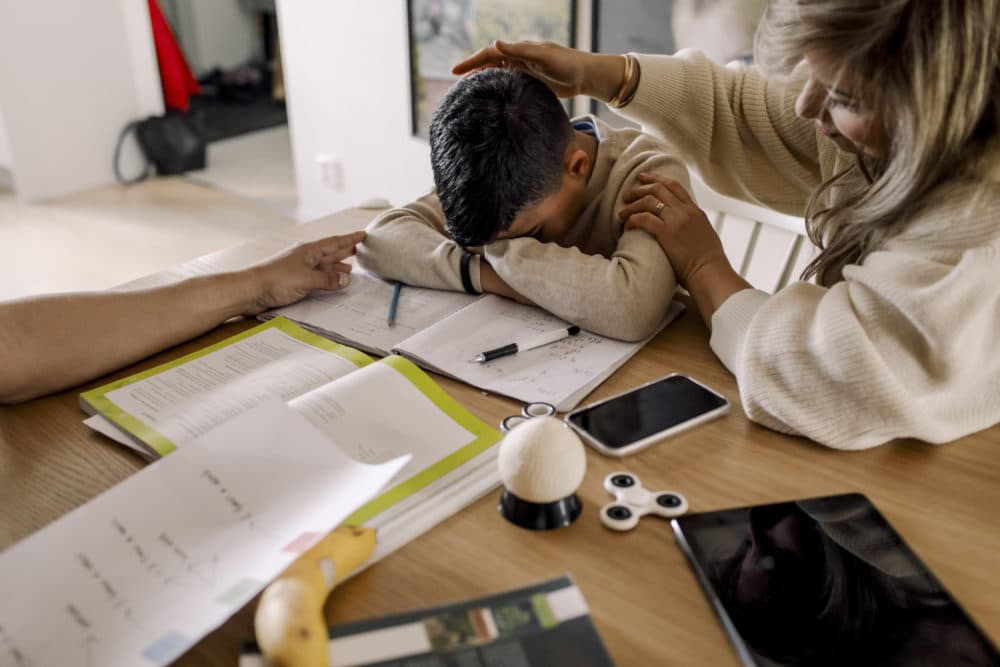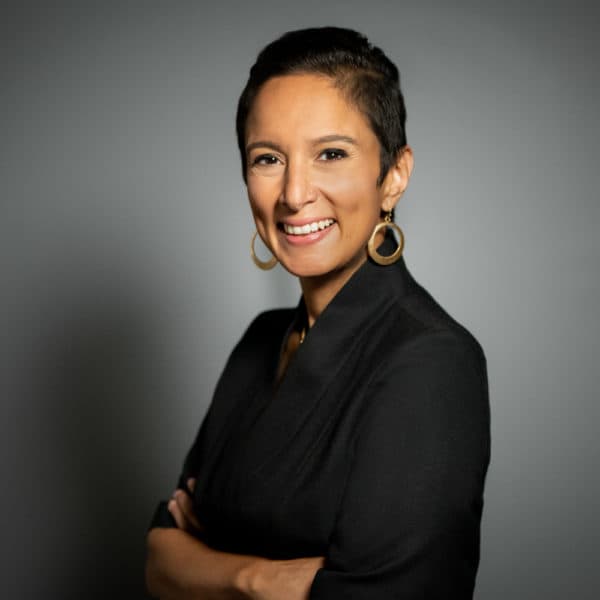Advertisement
School counselors sound alarm on children's mental health
Resume
The mental health staff in Worcester Public Schools is petitioning the school committee for more funding to address what they say is an "alarming" crisis among students.
The Centers for Disease Control found that more than a third of U.S. high school students reported they have experienced poor mental health during the pandemic. Nearly half reported they persistently felt sad or hopeless during the past year.
School counselors say they are unable to meet the mental health needs of students.
Lesli Suggs, the president and CEO of The Home for Little Wanderers, joined WBUR's Morning Edition host Rupa Shenoy to talk further about this.
Below are highlights from their conversation, which have been lightly edited.
Interview Highlights
On how the need The Home is seeing is beyond their current resources
"We serve more than 3,000 kids embedded in schools in the course of a year. Currently, we have a wait list of over 250 kids waiting for services and another 20-plus schools that are asking for a clinician from The Home for Little Wanderers to provide services for those kids. We've seen a dramatic increase in need certainly in the last two years.
"We're very lucky to have a robust system of care that provides mental health services to kids. Yet we just don't have the workforce. We don't have enough access that to keep up with the demand."
On how the increase in mental health needs among kids is playing out locally
"Even prior to the pandemic, we were seeing an increase in mental health concerns for kids. Between 2009 and 2019, kids reporting having feelings of sadness and hopelessness had increased 40%. So already, prior to the pandemic, children were struggling.
"And then the pandemic hit. And kids were not in the normal places where kids are — not in school and not engaging in social activities. That sense of isolation, the stress of home learning or not learning, falling behind, not being around their friends. The places where kids learn and develop is through connections with their friends. All of the factors that we know impacted kids we are certainly seeing."
On the challenges that mental health service providers are facing in providing access to mental health counselors for kids
"In Massachusetts, folks like to say we don't necessarily have a shortage of clinicians — we have a shortage of clinicians that take insurance. The reimbursement rates that both commercial insurance and MassHealth reimburses are just not adequate to be able to to compensate people in a way that they want to and should be compensated.
"So folks come in to organizations like The Home for Little Wanderers, they train, they get their license, and they move on either to hospital systems or to private practice. The demand is very real. And the access is challenged because of the workforce crisis that we're experiencing."
On possible solutions and what might happen if we don't meet the demand
"The solutions are, I think, multifaceted. Certainly increasing access, paying attention to reimbursement rates, looking at the credentials that clinicians need to have, the level of education ... and creating pathways for folks to enter the field who are culturally competent — that's extremely important.
"One of the things that we learned during the pandemic is that the increase in mental health concern for kids has been across every demographic, that there's no community that hasn't been touched by the crisis for kids. The term that 'the kids are not OK' is really true.
"We want kids to grow up with a sense of hope, with a sense of competency, feeling confident, feeling hopeful of learning. We actually want kids to learn in school. And when kids are feeling stressed and anxious and depressed, they're not able to do those things. So just as we think about kids' physical health, their dental health — their mental health is equally important."
This article was originally published on May 23, 2022.
This segment aired on May 23, 2022.

